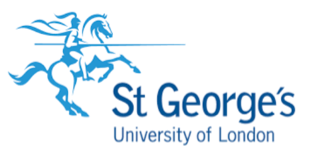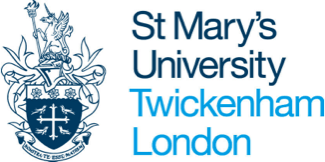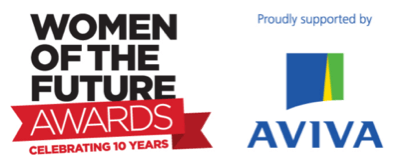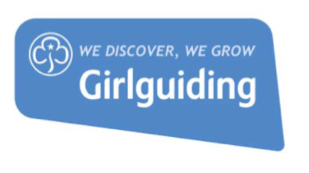We review pre-existing practices (policies, curriculum design, promotion pathways etc) and design and implement bespoke programmes to improve outcomes for diverse stakeholders. We bridge the gap between academia and industry, ensuring you are implementing the best evidence-based practice.
We provide training and organise focus groups to improve the organisation’s awareness and strategy to recruit and retain diverse people, ensuring they can thrive. We also deliver productivity boosting workshops, tailored to your needs. We also educate the community to remove stereotypes of industries that can benefit them and ensure industry is receptive and culturally aware.
We support universities to serve as ‘talent powerhouses’ by training the next generation of talent and bridging the gap with industry and other higher education institutions to ensure the flow of talent through the pipeline. This increases the likelihood of securing graduate jobs with leading firms prior to graduation.
Through our award-winning programmes, we provide funded internships, career workshops, networking, and mentoring opportunities to improve employability and accessibility to networks. This work involves engagement with external stakeholders, such as alumni.

Mohani is a Neuroscientist and Lecturer, with over a decade of experience in interdisciplinary research and education. Mohani has led several clinical trials, most recently investigating the link between long Covid-19 and the brain and has vast experience in curriculum design and assessment. In the final year of her PhD, Mohani was prompted to make a change as many of her students expressed that they felt underrepresented at university. It was at this point that Mohani created the ERA initiative, to resemble a new era of equity in academia. In her current role as Lead for Early Career Research Culture, Mohani is leading cultural reform within her organisation.









We coach leaders across academia and industry to develop their inclusive capabilities and educate people from diverse cultural backgrounds on what they need to do to further enhance their career.
We review admissions data, recruitment policies, curriculum design etc. We work with organisations to make this more inclusive. We facilitate think-tanks with your staff and/or students to implement a strategy that works for all and train staff to work with new guidance.
It is critical to set targets on internal diversity, equity and inclusion goals, incorporating feedback from underrepresented groups. The strategy and progress toward these aspirations should be communicated and cascaded regularly throughout the organisation. We can help you with this.
We have designed, conduct and published inclusive research in conjunction with leading academic institutions. Our research focus is the following:
As a business committed to fostering growth and collaboration, we aim to empower other companies to enhance their capabilities. By conducting thorough reviews to identify goals and gaps, we work closely with our clients to develop strategic plans aligned with their objectives. Through offering training, development, supporting innovation, knowledge sharing, and continuous evaluation. We strive to facilitate meaningful progress and celebrate achievements together.
We advise clients on how to set up analytics and research processes to investigate the delivery of your culture targets.
We have a combined experience of over half a century in:

EKTAA Director and Neuroscientist

Head of the Graduate School, the Head of Section for Humanities, Ethics, Law and Global Health, and the Course Director for the MSc in Global Health

Senior Lecturer in Immunology, Associate Dean (Postgraduate Research)

Content manager for Ektaa CIC. Final year medical student and incidentally, the first ERA ambassador.

Deputy Head of Enterprise and Innovation
Howard comes from a background of supporting founders. He has worked in the start-up
sector for the last 7 years and Higher Education for 10 years. In that time has focused on
creating businesses with strong foundations, testing founders to focus on adding value to
society through their business.
He has been part of a founding business team within the care sector. He has also supported
businesses through SEIS & EIS funding rounds.
His expertise within the Higher education sector as well as his ability to support founders has
been invaluable to Ektaa as our values align. Both Howard and Ektaa want to see the HE
sector more accessible for those who it is not a standard option for.

Androulla is a Senior Lecturer in Biomedical Sciences and Academic Lead for Biomedical Science Employability at St George's, University of London. Androulla’s research focuses on the sensitization of pancreatic cancer cells to anti-survival treatments and implications for future therapy. Her research specifically looks at how to target pancreatic cancer cells to undergo cell death using different combinations of treatment.
“It was a pleasure to welcome ERA candidate Maya Caan to our group this summer. Maya worked closely with research assistant Ella Rimmer on the project described above. She was both interested and engaged in understanding academic research, career opportunities and contributed to our research. I look forward to her returning to our group whenever she can and hope that we have been able to inspire her to continue with a career in academia.”

Anissa’s research focuses on unravelling the interplay of signalling pathways and genes regulation in skin homeostasis, inflammatory skin disorders, and skin cancer. Her group are also interested in investigating the role of receptor proteins in mitochondria homeostasis and oxidative stress in endothelial cells which may be relevant in different pathologies. Her group are specialised in a variety of genetic, molecular and cell biological techniques that they employ routinely to conduct their research.
“Never doubt your true potential and be confident to grab the opportunities on the way…like the ERA!”

Audrey Teh is a Lecturer in Molecular Immunology at St. George's, University of London. With a PhD from Trinity College Dublin and Postdoctoral research experience at St. George's, Audrey has 16 years of experience in plant-made antibody engineering, manufacturing, and delivery. She is passionate about making medicines and vaccines affordable and accessible to everyone, especially to people in low- to middle- income countries. Her current research focuses on designing and engineering novel therapeutics in plants to combat cancer. Audrey is also dedicated to promoting equality, diversity, and inclusion in STEM education.
“Giulia demonstrated outstanding enthusiasm and dedication during her two-week placement. She is such a joy to work with. This is my second year supporting this programme as I think it is important to provide hands-on experience to underprivileged students, potentially igniting passion and direction in scientific fields where they are often underrepresented. This will hopefully level the playing field and ensuring opportunities in cutting-edge research and networking aren’t limited just to those with resources. I think diversifying the scientific community through such programs can drive innovation and offer fresh perspectives, enriching the scientific field. I would be glad to participate again in the future.”

Professor Sheppard qualified in medicine from University College Cork, Ireland and did her postgraduate training in pathology in London. She is consultant cardiac pathologist. Professor Sheppard is on the board of UK Association of Inherited Cardiac Conditions. She is also a member of a UK strategy group for aortic dissection with Society for Cardiothoracic Surgery. Additionally, she is on the board of the National Pilot study of unexplained death in the UK 2021. As well as this, she is honorary Professor at St Mary’s University of London and Imperial College, London and visiting professor to the Royal College of Pathologists of Australia and New Zealand, the Turkish Pathological Society and to the International Academy of Pathology.
“As a woman myself, I think encouraging women to enter science is particularly important, as we are underrepresented. The ERA placement has been an extremely positive opportunity for both my staff and myself. We are used to having students in the lab but it was good to have a mature ERA student like Javeria who learned and adapted very quickly”

Dr Southgate is a Senior Lecturer and Deputy Head of Genetics at St George's University of London. She has over 20 years’ experience in human molecular genetics and genomics, developing a particular interest in defining the genetic causes of rare, inherited vascular disorders impacting all stages of life from neonates to adults. Laura gained her PhD in Medical & Molecular Genetics from King’s College London (KCL) and previously held post-doctoral positions at KCL and Queen Mary University of London. She has published numerous research articles in prestigious journals and regularly shares her professional opinion through expert panels and peer review. Aside from her research role, Laura enjoys creating learning content for undergraduate and postgraduate students via lectures, workshops and research projects, in addition to providing pastoral care to her personal tutees. In her spare time, she likes to travel and plays the piano, clarinet and violin (but not all at once!)
“As someone who is not from an academic family, I have been fortunate that colleagues and mentors have supported me at each stage of my academic career. The ERA programme therefore provides an opportunity for me to pay it forward and share what I have learned with students who may not have the same access to such valuable advice. By showcasing what an academic career has to offer, I hope to enthuse and inspire young students from diverse backgrounds to be able to make informed decisions about their future.”